Satellite data, drones, advanced sensor and software packages; these are just some examples of using technology in 21st century agriculture. As today’s farms in developed countries become more familiar with technology and investments in AgTech are picking up, how can geodata and ICT solutions also bring value to smallholder farmers in developing countries?
On the 16th of February 2017, NpM, Platform for Inclusive Finance, Rabobank Foundation, and the Netherlands Space Office (NSO) organized the conference “Geodata for Inclusive Finance and Food”. The conference was meant to show, share, and discuss the role of geodata and ICT solutions that can improve food security and access to finance for smallholder farmers. At the same time, a paper was published which included an investigation of more than 250 cases of technology applications in rural finance, including NSO’s Geodata for Agriculture and Water (G4AW) facility, which is funded by the Dutch Ministry of Foreign Affairs.
The research revealed fast growth in applications and services that:
- Improve agricultural production using geo-data, weather stations, drones, etc. These applications compile data focussed on improving farmers’ use of inputs, planting date, crop calendar, and so on.
- Collect and combine data into tools which provide relevant information for improved planning at macro level; but also to provide useful business information on markets and prices that is shared with farmers and businesses in agro-value chains, and;
- Improve financial inclusion in rural areas through digital payments systems, use of mobile banking, and micro-insurance. These developments positively affect both the cost-effectiveness and growth in outreach of financial services.
But who exactly are the users of these services and how do they benefit? Users can be smallholder farmers, financial service providers (FSPs), and governments and development organizations (although a government can also be a provider).
Getting the right information on time can be critical; receiving an SMS with up-to-date weather information, agricultural advice on when to plant your crops, and which type and amount of fertilizer to apply, can greatly boost smallholder farmers’ production capacity. But just as important for smallholder farmers is to have proper market access. Many services provide actual (and sometimes future) market prices, link smallholder farmers with other value chain actors, or even provide tracking systems using GPS, making it possible to track the produce through the entire value chain.
By improving their production and access to markets, smallholder farmers’ risk profile can be lowered. This provides a stimulus for financial institutions to provide more and better financial services to them, which increases their outreach. However, a mix of financial services might be needed, such as investment capital, working capital, payment services, insurance, etc. Secondly, geodata and ICT solutions have the potential to bring down transaction and monitoring costs, which might be just what is needed to reach further into the rural areas. Thirdly, governments and development organizations can greatly benefit from more accurate and timely information. For instance, ministries of agriculture can better target their interventions in the agricultural sector and NGOs can improve their extensions services to smallholder farmers.
Linking geo-data and ICTs to financial services
Agricultural information is becoming increasingly available for smallholder farmers. But what about the link with financial services? The research identified that there are still not many examples that actually do create the link; financial service providers that explicitly use geo-data and data on value chains/markets to improve smallholder farmers’ access to finance. Out of the few cases, most of them offer insurance products, some offer working capital or equipment loans. One case that does provide this link is the CommonSense project in Ethiopia, which is part of the G4AW facility. In this project, services to smallholder farmers include localized weather data, crop monitoring and yield forecasting, crop suitability, and market price information. All of this improves their production and access to markets. At the same time, Microfinance Institutions (MFIs) that are supported by ICCO Terrafina Microfinance are guided to improve their risk assessment and loan monitoring. This lowers monitoring and transaction costs, leading to an increase in their outreach.
The way forward
Although the potential of using technology in agriculture is huge, several lessons can already be drawn from the study. To improve and scale-up the services, there is a need for:
- A good policy and regulatory environment that stimulates innovation while safeguarding privacy rights, transparency, and the stability in the business environment and financial system.
- Designing services for smallholder farmers and other users that are tailored to their needs.
- Financial institutions, especially those operational in rural areas, need guidance and support. They face bottlenecks in terms of staff capacity, financial constraints, but also digital illiteracy.
- New technology needs high upfront development costs. While the private sector is getting involved, the current business case serving smallholder farmers is not yet evident. Donors, governments and (social) investors can play an active and important role in providing high-risk bearing capital for scaling-up and assisting services to become commercially viable.
- Special attention to include youth and women so they too can benefit from the new technologies.
Geodata and ICT solutions offer promising opportunities for improving food security and access to finance. Therefore, ICCO Terrafina Microfinance is also looking for ways to incorporate this into existing and new microfinance programs if it can be valuable for both smallholder farmers and financial service providers.
Want to know more? Contact Martijn Vranken (martijn.vranken@fairandsustainable.nl) or Mariel Mensink (mariel.mensink@fairandsustainable.org).
The full paper is available online here; access to the world map with over 250 cases can be found here.
